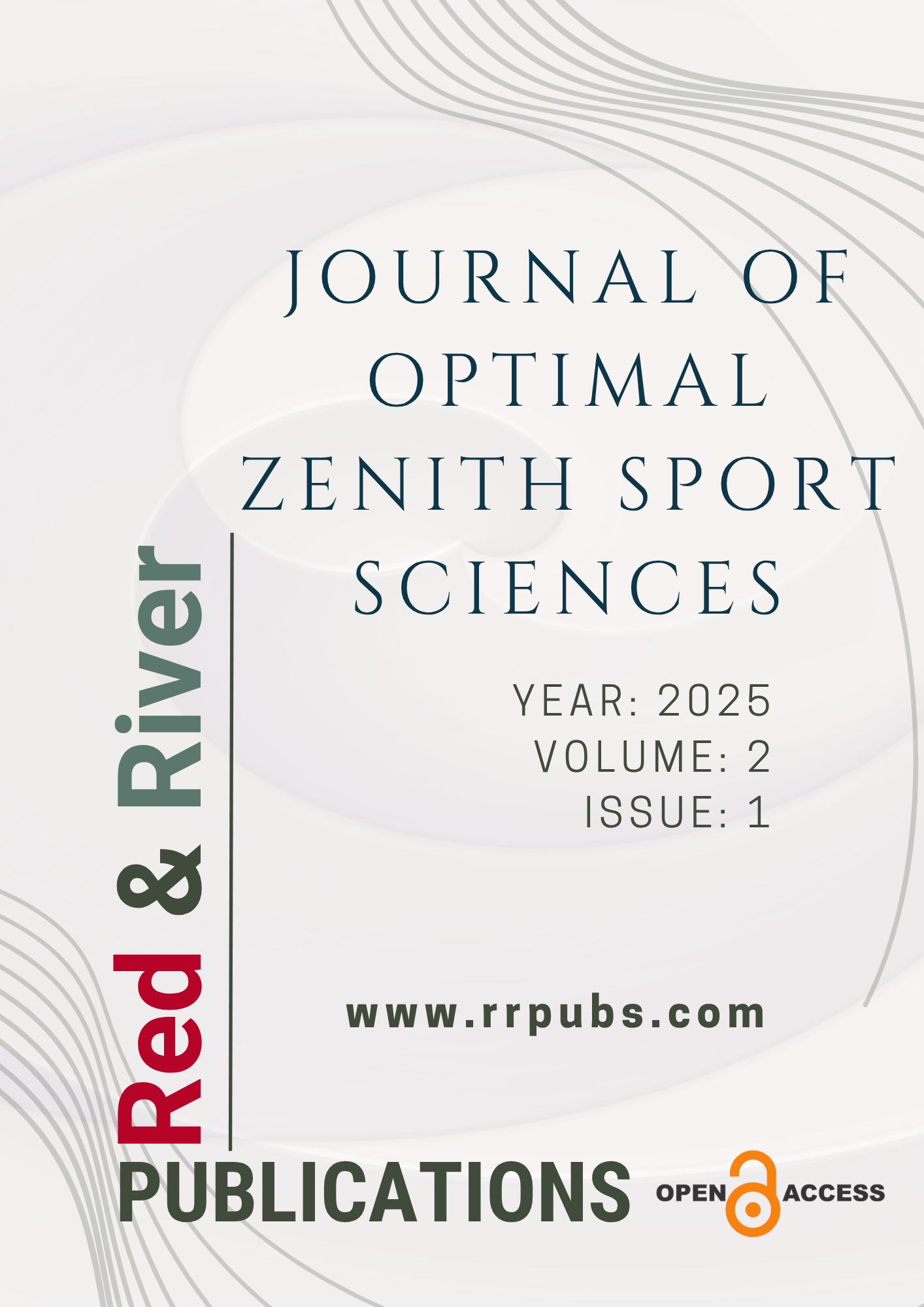Employment and Employment Problems of Students of Higher Education Institutions
DOI:
https://doi.org/10.70736/jozss.2017Keywords:
Employment, employability, physical education, sportsAbstract
When Turkey in rising unemployment and youth unemployment profile cases in recent years examined a serious rate of educated unemployed in the population it has been the most important reason we do this work. With the globalization after 1980, rapidly changing technology, information economy and increasing international competition have affected the labor market as well as other fields and the need for educated, skilled and young labor force has increased in the labor market. In this process, the importance given to human quality and education in our country is gaining importance day by day. We reach a lack of basic education and the fact that our country as much a shortage of human resources in raising employment issues to be examined educated population lived in Turkey. The purpose of this study, the employment of trained sports training that institutions of higher education students in Turkey and detected the problems experienced in the field of employment in developed countries to investigate human capital and the impact of policies and programs in education and make a research study on the applicability in Turkey. Data were obtained by examining in-depth and detailed past studies about our subject. In this study, studies that were done in the previous periods and close to our research were identified and information was taken to be used as a citation source.Directing students to part-time jobs related to sports available in the market, enabling them to take part in camp activities and especially in volunteering projects in sports, giving work experiences at university which will enable them to start their careers at higher levels instead of lower levels in the future allow them to adapt. Although the term employability does not indicate the functional capacity of a person in a job, it is difficult to define it at a simple level about getting a job. It is seen that the graduates in the field of sports are mostly employed in jobs outside their own fields.
References
Alpaslan, T., & Kılcıgil, E. (2005). Ankara Üniversitesi Beden Eğitimi ve Spor Yüksek Okulu öğrencilerinin sosyo kültürel yapı-meslek seçimi ilişkisi. Spormetre Beden Eğitimi ve Spor Bilimleri Dergisi, 3(1), 65-69.
Ataçocuğu, M. Ş., & Zelyurt, M. K. (2017). Spor Bilimleri Fakülteleri mezunlarının işsizlik deneyimleri üzerine nitel bir araştırma. Sportif Bakış: Spor ve Eğitim Bilimleri Dergisi, (1), 70-97.
Ataman, B. C. (1998). İşsizlik sorununa yeni yaklaşımlar. Ankara Üniversitesi SBF Dergisi, 53(1), 59-72.
Bavlı, Ö. (2009). Beden Eğitimi ve Spor Yüksekokulu öğrencilerinin spora başlama, bölümü seçme nedenleri ve geleceğe yönelik beklentilerinin incelenmesi. Niğde Üniversitesi Beden Eğitimi ve Spor Bilimleri Dergisi, 3(3), 23-32.
Fişek, K. (2016). Türkiye'de spor yönetimi: Tarih, yapı ve sorunlar. In L. Demirelli & R. Aydın (Çev.), DAS Yönetim: Devlet, İktidar ve Bürokrasinin Marksist Analizi (ss. 463-464). Nota Bene Yayınları.
Hiçyılmaz, E. (1983). Sporda Batılaşma Hareketi (ss. 42-48). İstanbul: Gözeten Kitapevi.
Hillage, J., & Pollard, E. (1998). Employability: Developing a framework for policy analysis. London: Department for Education and Employment (DfEE).
International Labour Organization. (2006). Key indicators of the labour market (4th ed.). Retrieved June 14, 2019, from http://www.ilo.org/public/english/employment/strat/kilm
Işık, E. (2013). Üniversite öğrencilerinin ideallerindeki işe yönelmelerine engel olduğunu düşündükleri işlevsel olmayan kariyer inançları. Türkiye Sosyal Araştırmalar Dergisi (TSA), 363-376.
Milli Eğitim Bakanlığı. (1997). İlk ve Ortaöğretim Kurumlarında Beden Eğitimi Öğretmenlerinin Ders içi ve Ders Dışı Çalışma Rehberi. Resmî Gazete (Sayı: 15574), 24 Haziran 1997.
Milli Eğitim Bakanlığı Personel Genel Müdürlüğü. (2019). Beden Eğitimi Öğretmenliğinde yıllara göre atama sayıları. Retrieved December 12, 2018, from http://www.mebpersonel.com/m/ogretmen-atamalari/beden- egitimi-ogretmenliginde-yillara-gore-atama-sayilari-h224490.html
Mütevellioğlu, N., & Sayım, I. (2009). Türkiye’de neoliberal dönüşümün emek piyasası üzerindeki etkileri. In Küreselleşme, kriz ve Türkiye’de neoliberal dönüşüm (ss. 159-204). İstanbul Bilgi Üniversitesi Yayınları.
Organisation for Economic Co-operation and Development. (2009). Employment outlook 2009. OECD Publishing.
Polat, S. (2013). Pedagojik formasyon sertifika programı ve eğitim fakültesi öğrencilerinin öğretmenlik mesleğine yönelik tutumlarının incelenmesi. e-International Journal of Educational Research, 4(2), 48-60.
Sarıkaya, T., & Khorshid, L. (2009). Üniversite öğrencilerinin meslek seçimini etkileyen etmenlerin incelenmesi: Üniversite öğrencilerinin meslek seçimi. Türk Eğitim Bilimleri Dergisi, 7(2), 42-46.
Seçer, B. (2013). Eksik istihdam, öncülleri, sonuçları ve nitel bir araştırma (ss. 48-52). İzmir: Altın Nokta Yayınevi.
Yanıkkerem, E., Altınparmak, S., & Karadeniz, G. (2004). Gençlerin meslek seçimini etkileyen faktörler ve benlik saygıları. Nursing Forum Dergisi, 7(2), 63-65.
Yetim, A. A. (1992). Başarılı bir spor yöneticisinin özellikleri. Gazi Üniversitesi Gazi Eğitim Fakültesi Dergisi, 8(1), 14.
Yıldız, S. M. (2008). Beden eğitimi ve spor öğretimi veren yükseköğretim kurumları ve istihdam durumları.
Kastamonu Üniversitesi Kastamonu Eğitim Dergisi, 16(2), 651-656.
Yıldız, S. M., Özdağ, S., & Yaman, Ç. (2008). Beden eğitimi ve spor eğitimi veren yükseköğretim kurumları ve istihdam durumlarına yönelik öğrenci algılamaları. Uluslararası İnsan Bilimleri
Downloads
Published
Issue
Section
License
Copyright (c) 2025 Journal of Optimal Zenith Sport Science

This work is licensed under a Creative Commons Attribution 4.0 International License.

